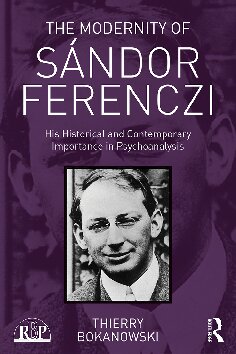

Most ebook files are in PDF format, so you can easily read them using various software such as Foxit Reader or directly on the Google Chrome browser.
Some ebook files are released by publishers in other formats such as .awz, .mobi, .epub, .fb2, etc. You may need to install specific software to read these formats on mobile/PC, such as Calibre.
Please read the tutorial at this link: https://ebookbell.com/faq
We offer FREE conversion to the popular formats you request; however, this may take some time. Therefore, right after payment, please email us, and we will try to provide the service as quickly as possible.
For some exceptional file formats or broken links (if any), please refrain from opening any disputes. Instead, email us first, and we will try to assist within a maximum of 6 hours.
EbookBell Team

4.3
58 reviewsThe Modernity of Sándor Ferenczi provides a concise yet thorough overview of the life and work of Sandor Ferenczi. It seeks to help make his thought and work better known, as a controversial pioneering psychoanalyst whose importance to psychoanalysis has sometimes been wrongfully neglected and relegated to backstage.
Including excerpts from his most important papers, this book gives the reader a clear guide to the major tenets of Ferenczi’s work, the psychoanalytic context in which his significant achievements occurred, and the continued importance of his work for contemporary psychoanalytic theory and clinical practice. Thierry Bokanowski examines Ferenczi’s work in three main stages:
1. A first period of contribution to Freud’s work (1908-1914)
2. A second period of the deployment of Ferenczi’s own thought and work (1914-1925)
3. A third period of calling concepts into question and advancing new concepts (1926-1933)
Bokanowski offers a detailed analysis of these three periods, illustrating them vividly by analysing Ferenczi’s numerous and very famous articles or books during these periods in a way that allows his very original way of thinking to unfold. He then examines at the theoretical level the heritage of Ferenczi’s hypotheses developed across these three time spans.
Covering Ferenczi’s relationship with Freud and with other early psychoanalysts, and his role in formulating well-established concepts such as introjection, countertransference and narcissistic splitting, The Modernity of Sándor Ferenczi provides an essential and accessible read for any student or clinician of psychoanalysis or psychoanalytic psychotherapy seeking to apply Ferenczi’s work in the present and understand the historical development of psychoanalytic ideas.